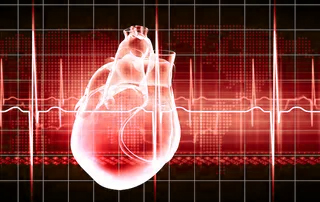A fourth chance at life: Susan's remarkable heart transplant story
June 7, 2021
Getting the call
I'd gotten steadily sicker over the summer – sick enough that I qualified for surgery under the rigorous pandemic protocols.
That whole summer, the heart transplant team checked on me every day – without fail. I never felt out of the loop or alone, even though my family couldn't be there because of COVID-19 safety restrictions.
On Aug. 11, I was placed on the transplant waiting list. Three days later, on Aug. 14 at 2 a.m., Dr. Thibodeau called my room with the news we'd been waiting for – a donor heart was on its way to Dallas for me. I'd get my transplant later that day.
When I hung up the phone, I felt a flood of emotions. Sadness that someone had to die for me to get another chance to live. Excitement that my chance had finally come. Fear that I was having yet another surgery, even though I trusted my UT Southwestern doctors completely.
But mostly, I felt alone. I had always pictured that Lucy and mom would be with me in this moment, surrounded by the kids. I laid awake until mid-morning, thoughts racing.
Finally, I drifted off to sleep and when I woke up, there was a tube in my mouth.

'I'd slept through the most exciting part!'
They'd put me under anesthesia while I was sleeping, and when I woke up I learned that the transplant was complete. I'd slept through the most exciting part!
Even though my mom was 2 1/2 hours away, the transplant team kept her in the loop, checking in every few hours. That meant the world to us. During my sister's kidney transplant at another hospital, the doctors didn't contact my mother for two whole days.
When I woke from anesthesia, the transplant nurses were there and asked how I felt. I gave them a thumbs up, and two hours later, my breathing tube was removed and recovery began.
None of my family could visit because of the pandemic restrictions, and the isolation led me to a new goal: Working hard to get home to the kids.
Dr. Justin Grodin, who worked with me after the transplant, told me point blank: "If you want to get out of here and go home, you have to start walking. It will speed up your recovery."
The transplant doctors were so encouraging. The nurses quizzed me on my new medication schedule and diet, and they never made me wait for help when I wanted to walk. The team helped me streamline my recovery so I could get back home to the kids. I think they were surprised at how fast I recovered! I didn't even have to go to cardiac rehab.
I was discharged on Aug. 27, less than two weeks after my transplant – the same day Hurricane Laura was gearing up to slam through Texas and Louisiana. Fortunately, Tyler was spared and Mom made the journey to Dallas and took me home.















